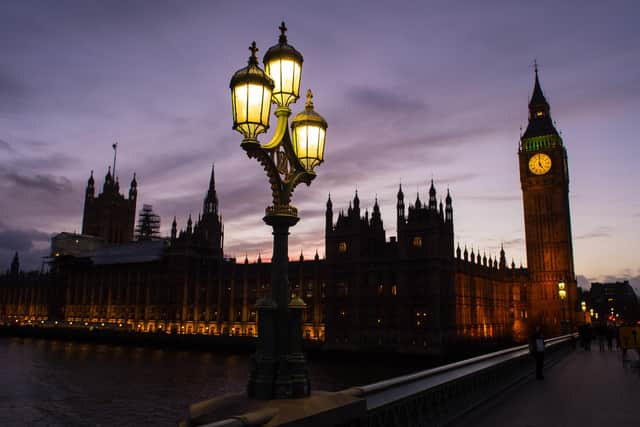New watchdog to tackle slavery and protect workers rights created by UK Government
Tasked with tackling modern slavery, enforcing the minimum wage and protecting agency workers, the move sees three different organisations brought into a “one-stop shop”.
Ministers claim the move will make it easier for workers by providing one body and a simple process of reporting bad behaviour.
Advertisement
Hide AdAdvertisement
Hide AdBusiness minister Paul Scully said: “This government has been absolutely clear that we will do whatever we can to protect and enhance workers’ rights.


“The vast majority of businesses want to do right by their staff, but there are a minority who seem to think the law doesn’t apply to them.
“Exploitative practices like modern slavery have no place in society.
“This new workers’ watchdog will help us crack down on any abuses of workers’ rights and take action against companies that turn a blind eye to abuses in their supply chains, while providing a one-stop shop for employees and businesses wanting to understand their rights and obligations.”
The new body will also help ensure vulnerable workers get holiday pay and statutory sick pay without having to go through a lengthy employment tribunal process.
It merges the Gangmasters and Labour Abuse Authority, the Employment Agency Standards Inspectorate and HMRC’s National Minimum Wage Enforcement.
The new body will also provide guidance on best practice to businesses and build links with community and worker groups to spread awareness and support engagement with at-risk groups.
This includes the low-paid and those in sectors like construction and agriculture that could be at higher risk of abuse.
Advertisement
Hide AdAdvertisement
Hide AdThe UK Government has also promised to explore further measures to target abuses in the garment sector following reports of serious problems in the industry.
Options being examined include creating a Garment Trade Adjudicator to investigate companies’ supply chains, or extending the licencing scheme that covers employers in the agricultural sector.
There will also be warnings that if brands don’t improve, the government could hit them with even harsher measures such as bans on goods made in factories where workers have been underpaid.
In 2019 there were 5,144 modern slavery offences recorded by the police in England and Wales – an increase of 51 per cent from the previous year.
If you haven't already, please consider supporting our trusted, fact-checked journalism by taking out a digital subscription.
Comments
Want to join the conversation? Please or to comment on this article.
